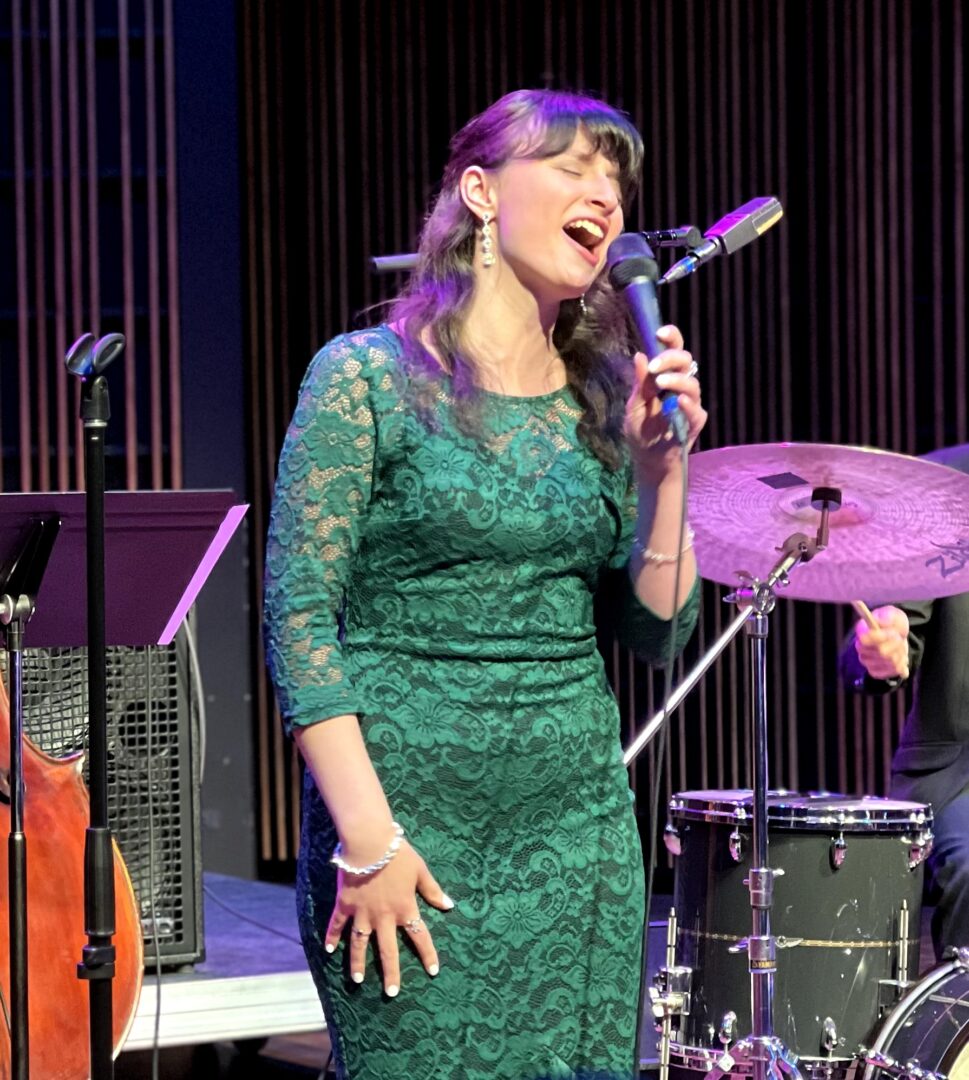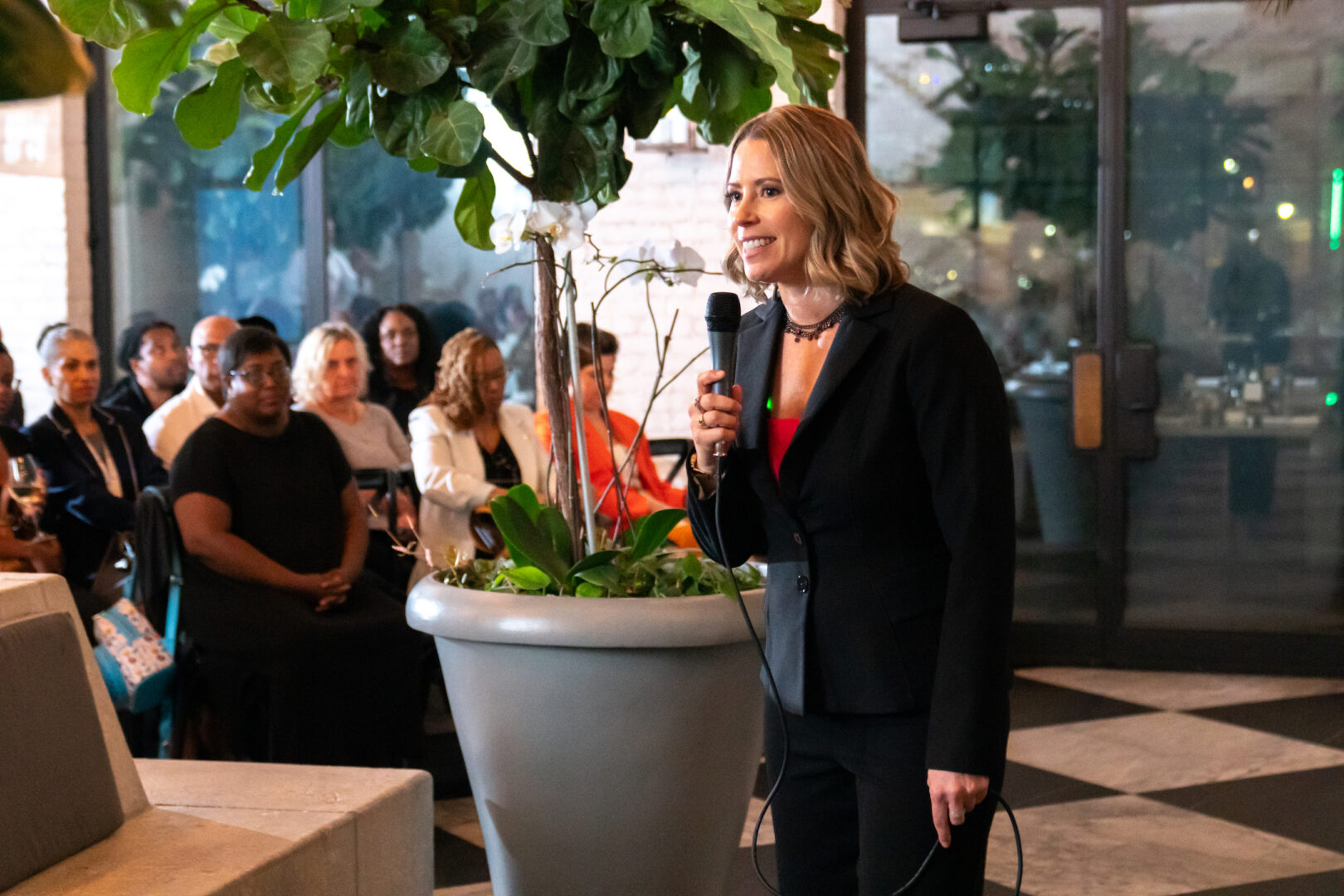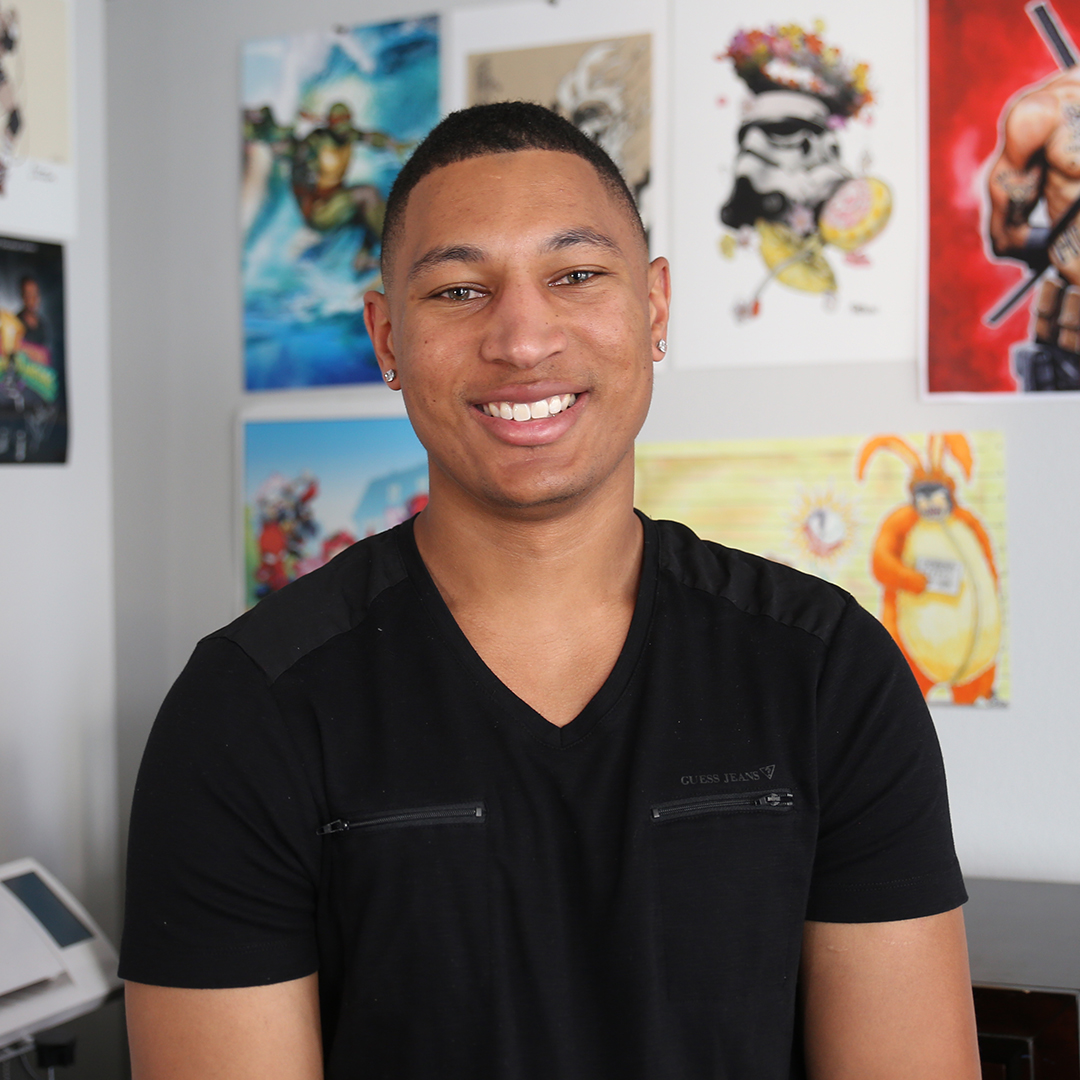Alright – so today we’ve got the honor of introducing you to Julie Coggiola. We think you’ll enjoy our conversation, we’ve shared it below.
Alright, so we’re so thrilled to have Julie with us today – welcome and maybe we can jump right into it with a question about one of your qualities that we most admire. How did you develop your work ethic? Where do you think you get it from?
Work ethic is interesting to reflect on. The young me never thought my drive to get things done would change over the course of my life. I am a very “type-A” person; I am
exceptionally organized, I get things done well, and I meet deadlines.
I have found that people who have these characteristics often excel in academic settings. I was always at the top of my class, never missed a homework assignment, and felt that I was set up to succeed and function very well in the world because I could succeed within the familiar confines of academia.
Making the transition was harder than I thought – when I left school and went into the world to become a freelance musician, my work ethic shifted. While most jobs function with institution-wide deadlines and other expectations familiar to a school-bred individual, this job was different. Now, the only person holding me to a deadline was me, and that deadline was self-established (if it even existed).
I had it ingrained into my head that I worked to serve others; I knew I could very easily get assignments done for external purposes. I could never mess up a due date or project set up by someone else; I dreaded the idea of letting anyone down. I started to notice that those deadlines and assignments mattered more to me than my own.
When it came to missing one of my deadlines or letting myself down, I seemingly didn’t care as much. Being the person who tells myself what to do on a self-determined deadline felt like a shock to my system and interestingly, made me feel like I didn’t have anything to seriously work for. I saw personal goals as things that could be easily ignored – no one else cared if I accomplished them, so why should I?
To give context, being a freelance musician is akin to any type of freelance work. You are the one doing everything – booking gigs, promoting yourself, creating your brand and materials, creating an online presence and more, on top of – oh yeah, the MUSIC part! That includes learning and writing songs, composing arrangements, practicing, listening to music and always striving to be better at your craft. You are your own business and your own product, and you let yourself down if you fall short in either area.
On top of being a freelance musician, I work as an adjunct professor at a few colleges. Academia feels familiar and I know what to expect, so I devoted more of my efforts into this area for my first year post grad. Someone else is giving me deadlines; if I don’t get these jobs done, I let down students and colleagues. This was the work that I prioritized and I always let my own goals fall by the wayside. Admittedly, I realize I could’ve been burnt out from graduate school and maybe was subconsciously trying to survive on doing as little as possible for a while, but even though that may have been a factor, I know I was falling short on my personal goals. I didn’t do enough to nurture the freelance musician because if I didn’t meet my own deadlines, it was only letting ME down, and that didn’t feel like as big of a deal.
“Only letting me down.” Isn’t that insane to read? Why is it okay for me to let myself down? Why didn’t that matter to me? Did growing up as a type-A robot in academia do this to me? Why was I exclusively motivated by external deadlines?
This mentality surely links to self-confidence. Self-confidence is something I’ve struggled with in the past. High expectations (from myself and others), understanding my identity as a woman in a heavily male-dominated industry, and looming feelings of imposter syndrome have impeded my ability to see myself in the light that I should. It is difficult to address those feelings head on, but I know I am ultimately being unfair to myself by ignoring the self-love and nurturing I deserve. It is never guaranteed that others will advocate for me, so I must.
Furthermore, I fear failure. That is another part of the reason I was less inclined to invest in myself; I didn’t want to risk the chance of falling on my face. Nonetheless, I have come to realize (like this magazine preaches) being bold about trying new things is beautiful; it means taking a step towards achieving the most successful and complete version of yourself. It involves facing your fears and understanding that you and your future are worth investing in, so you need to prioritize and support yourself accordingly.
To appeal to the type-A individual in me, I started making freelance to-do lists to help me achieve my goals. I tell my friends ideas for my career so they can hold me accountable for bringing the ideas to fruition. Saying a thought out loud or writing it down, while a seemingly simple first step, makes the thought a lot harder to ignore. I try to focus on taking little steps towards a goal as well, instead of getting frozen in my own anxiety over how daunting a big project can appear. Furthermore, I draw inspiration from my friends and other professional musicians. If my peers across the world do this for themselves, why can’t I? What is stopping me other than me?
My brain had to be re-wired a bit to understand how to navigate this change. It also required more self-confidence and soul-searching to understand that letting myself down should matter just as much to me as letting a colleague or teacher down, if not more. I don’t want to look back on life in fifty years and realize that I never accomplished what I wanted because I would get in my own way. After leaving academia, the values behind my work ethic shifted from not only meeting the deadlines of other people, but also understanding that my own deadlines deserve the same amount of effort.
It is important to speak openly about the challenges of being a freelance musician. I’ve noticed several of the elements of this job are not universally taught in music schools to every music student – the marketing, finding work-life balance, building daily structure, and even how to construct an email to book a gig are all topics that are not always covered in depth. It is a challenge to reach the very real understanding of how you are the one to make a music career happen for yourself. Concert venues aren’t going to seek you out and gigs usually don’t just fall into your lap – there is a hustle and a grind that requires a self-motivated, internalized work ethic to drive you towards success.

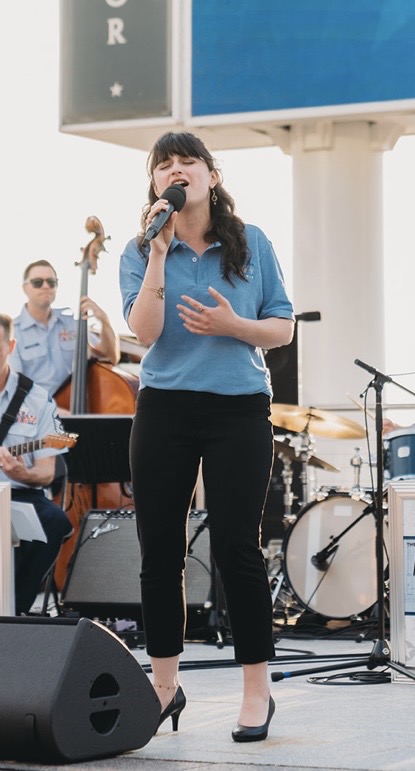
Thanks, so before we move on maybe you can share a bit more about yourself?
I am a vocalist, multi-instrumentalist, and educator from Syracuse, NY currently based out of Dallas-Fort Worth, TX. Personally, I am focused on finding a balance between being a successful educator and a successful freelance musician. While many musicians like to lean in one direction or the other, I love both passions pretty evenly.
I teach at a few colleges, I give in-person and virtual lessons, I do clinics and masterclasses at universities across the country, and I perform in venues across DFW (or wherever other people want to hire me!) in big band, combo, and solo settings. I am also an avid songwriter, arranger and lyricist. I just finished writing an original song- cycle/jazz cabaret show that I am touring around DFW with original music and arrangements of songs from a multitude of genres. Also, I am recording my first album this summer, which is currently projected to be released within the next year. I am also a budding jazz and music researcher.
My singing style is versatile, electrifying and reminiscent of a dynamic combination of greats. Drawing inspiration from Nancy Wilson, Carmen McRae, Sara Bareilles, and Karen Carpenter, I like to be an expressive, soul-touching performer who is committed to caring for her audience through a well-crafted show.
My original music fuses jazz, theatre, and popular styles. I blend elements of genres together, ideally creating a unique sound that is both soothing and intriguing. My songs draw inspiration from my personal experiences and the world around me.
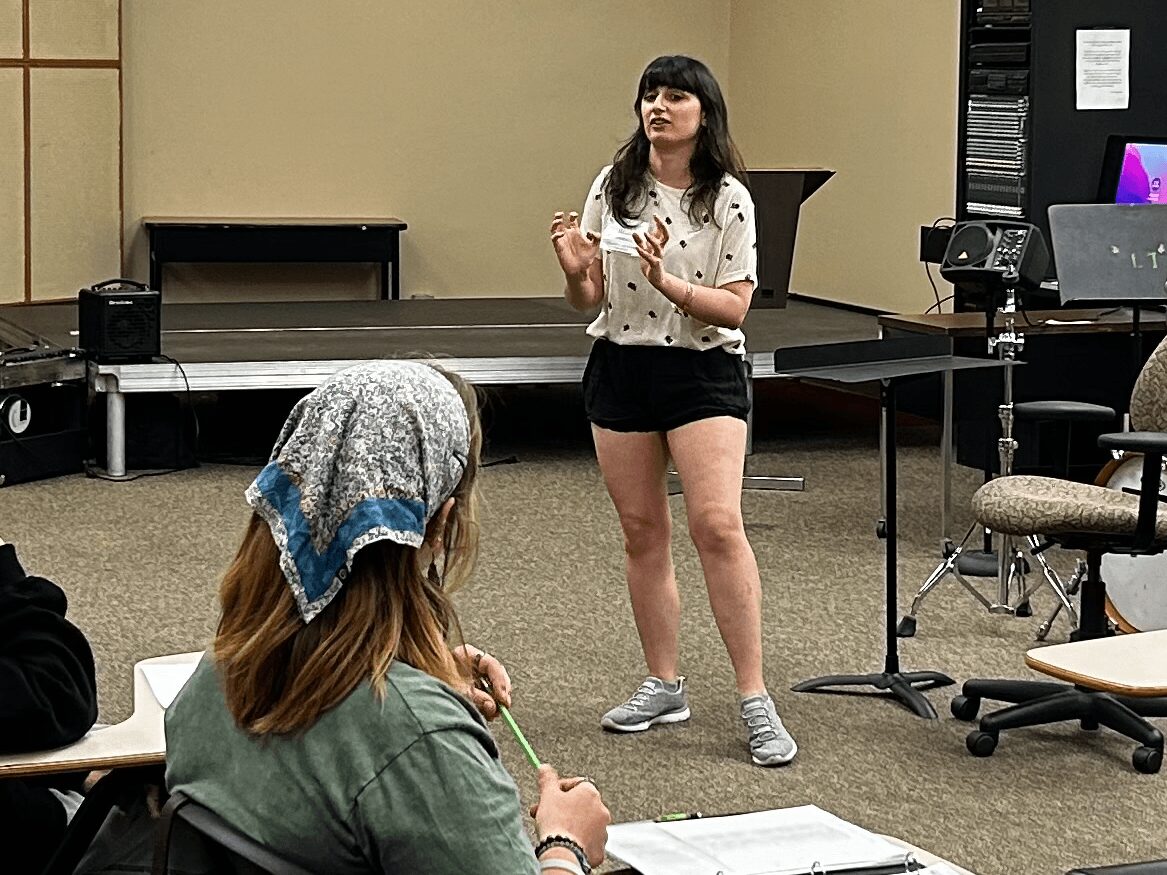

If you had to pick three qualities that are most important to develop, which three would you say matter most?
I think what is interesting about my story is that I realized I always had the skills to be a successful freelance musician – I just didn’t have the work ethic or discipline to apply them for my own needs! My advice may be to know your strengths and know your self- worth, as both are important for success.
How type-A I am is one notable quality that helps me, especially now that I know how to utilize these skills effectively! Being this way has been very useful in being a freelancer, as I have now created a very organized process for myself as I manage my personal pursuits.
My empathy is a blessing and a curse, and it has been my whole life. Because of how much I care for others, I don’t often put myself first, as I discussed. However, I understand that overall, empathy is a very valuable trait to have. It certainly helps me be a better writer and a better performer, as I attempt to understand other peoples’ experiences to make the stories I share more universally felt.
Finally, the third quality that influences my journey is my ability to be real with myself. I could have gone many years ignoring my needs, but I knew that something was off with myself recently and that I was casting my desires to the wayside. This is what led me to doing the soul-searching I needed to get on my feet as a freelancer.
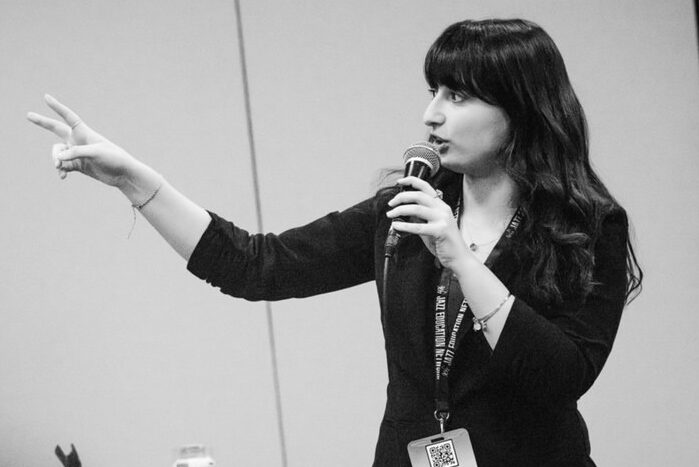
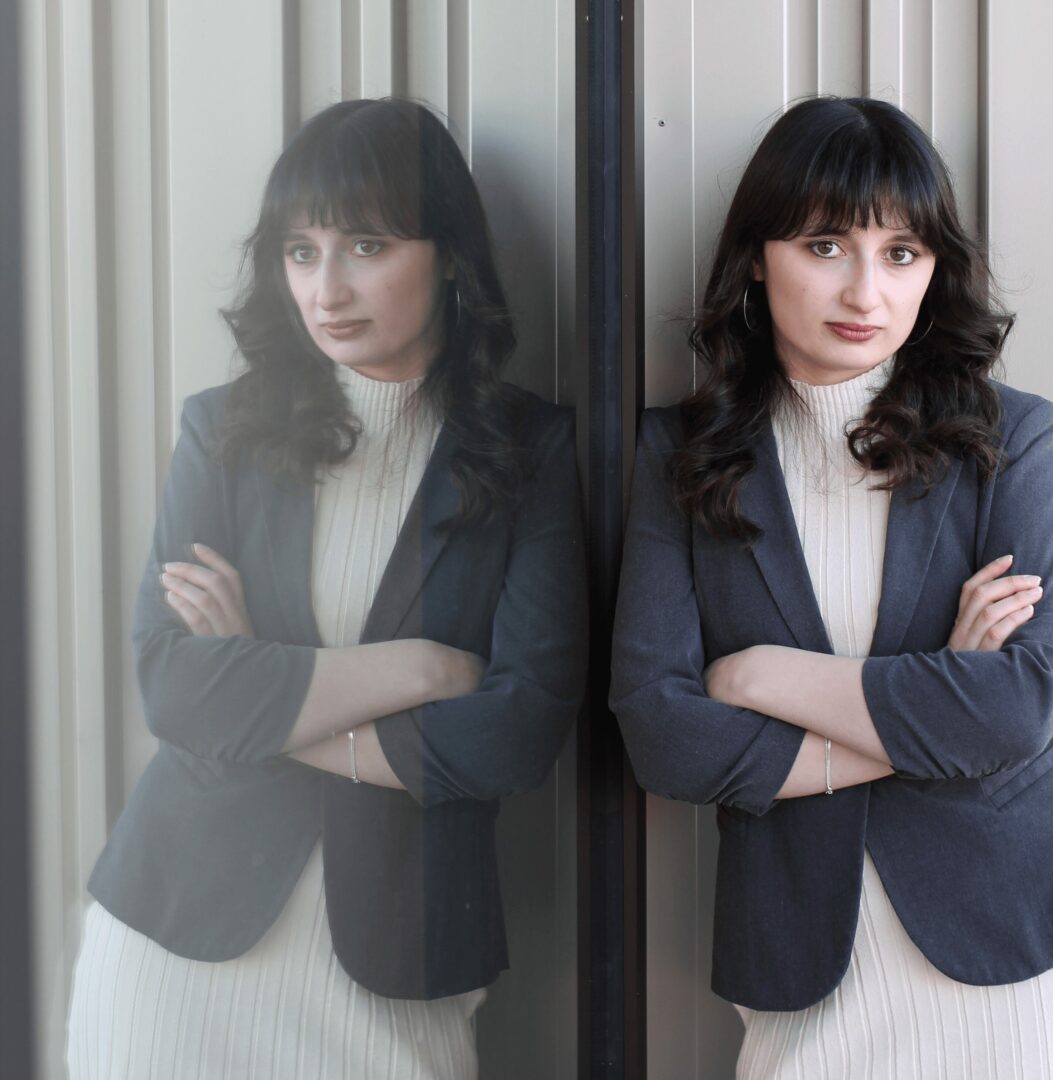
Do you think it’s better to go all in on our strengths or to try to be more well-rounded by investing effort on improving areas you aren’t as strong in?
In my opinion and experience, the most successful freelance musicians are multi- faceted. Simply put, your ability to say yes to something gets you gigs (and money), and if you say no to something you are turning down what could be good opportunities (and money). If you can do many things, you are marketable and people will be more inclined to hire you. For instance, if you can play piano, sing background vocals and compose, someone doesn’t need to hire three separate people to do that for their band, as you can do it all.
Beyond the business side of things, I have found that being multi-faceted helps me to be a stronger musician. I am a vocalist of many genres, a clarinetist of many genres, a saxophonist, a pianist, a composer/songwriter, a lyricist, an arranger, a conductor and an educator. I have learned things from every single element of my musicianship that have helped me better my skill in the other elements of my musicianship. Understanding how to technically produce a vocal sound helps me improve my clarinet technique because I can make my breath more efficient and shape my mouth to get a more relaxed and resonant sound. I connect more to the text of a piece I am conducting with a choir because I put myself in the composer or songwriter’s shoes, as someone who has written many works myself. And of course, I always learn from my students’ experiences and growth. Everything connects and makes me a more knowledgeable artist overall.
Contact Info:
- Website: https://juliecoggiola.com/
- Instagram: https://www.instagram.com/julie_coggiola/
- Facebook: https://www.facebook.com/julie.coggiola/
- Linkedin: https://www.linkedin.com/in/julie-coggiola/
- Youtube: https://www.youtube.com/@justjulie_music
- Other: This is my album’s GoFundMe:
https://gofund.me/8fedf281This is my LinkTree:
https://linktr.ee/julie_coggiola?fbclid=PAZXh0bgNhZW0CMTEAAacLewpoOm_mS7DFuOnn9N5WERrgeX4EMF_EVUvmbjt9vdUkyAwLKXqTUMIj2w_aem_Wdnyj7L8g2UlHggRJyTZVg
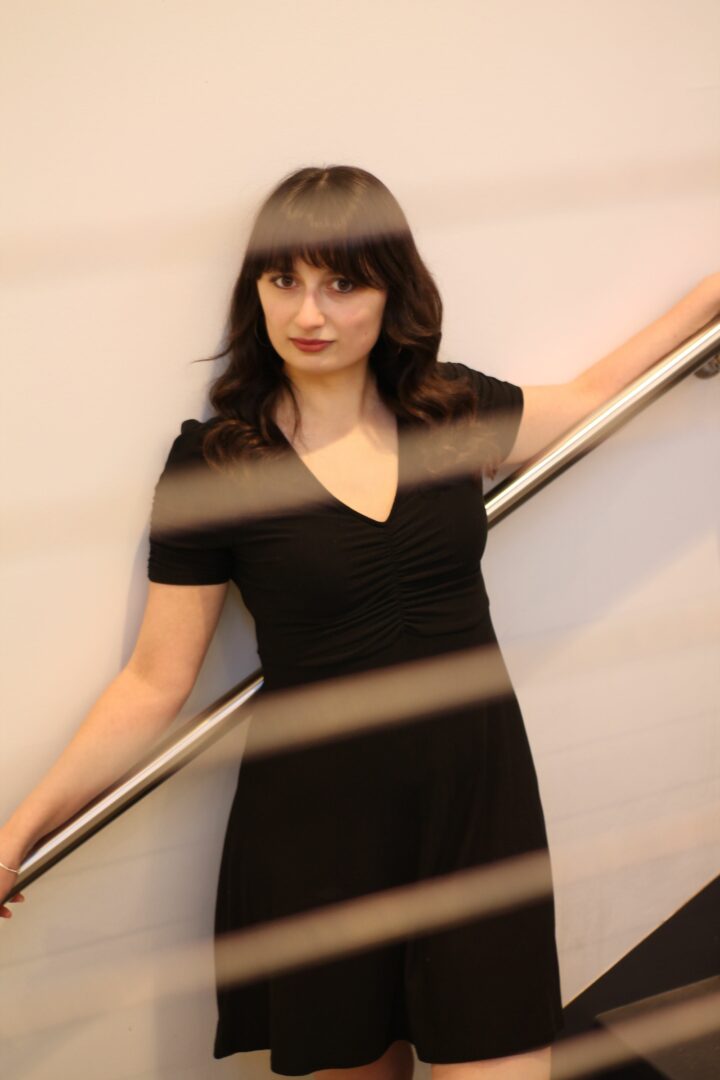
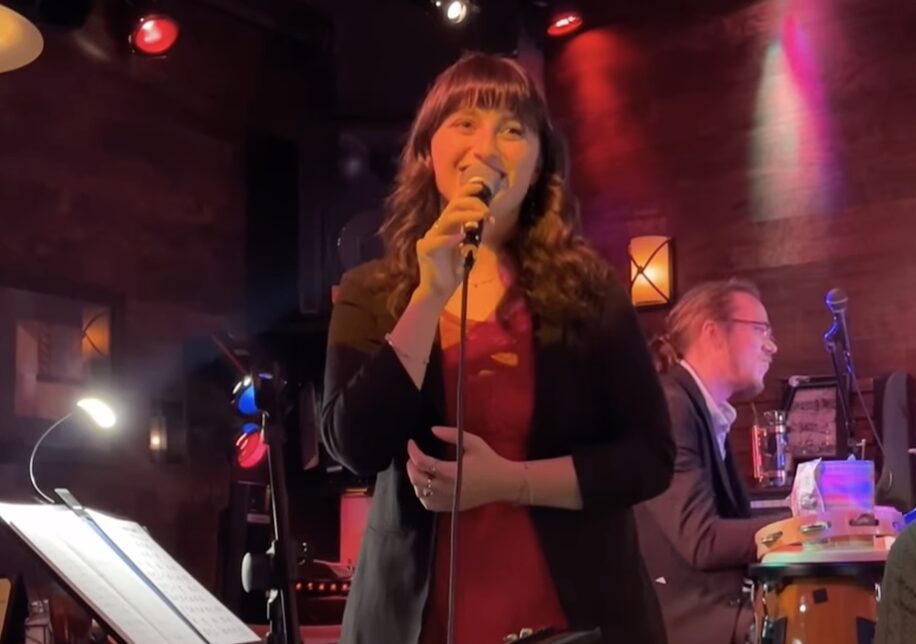
Image Credits
Marcy Bishop
Nick Coggiola
Allison Miserendino
so if you or someone you know deserves recognition please let us know here.

